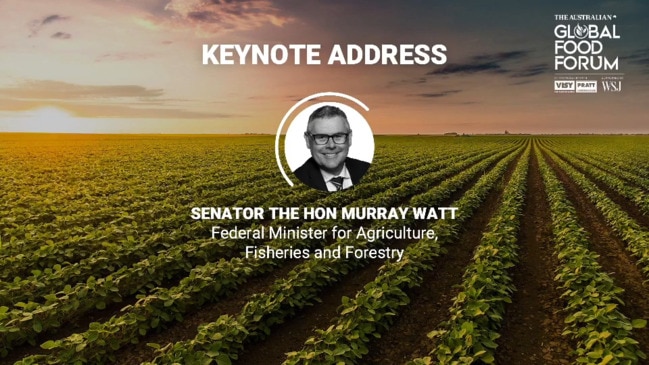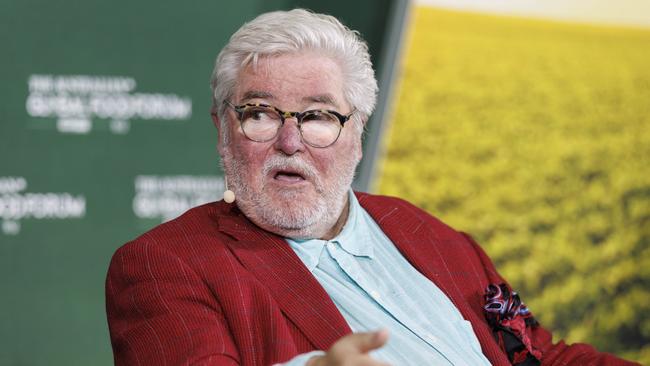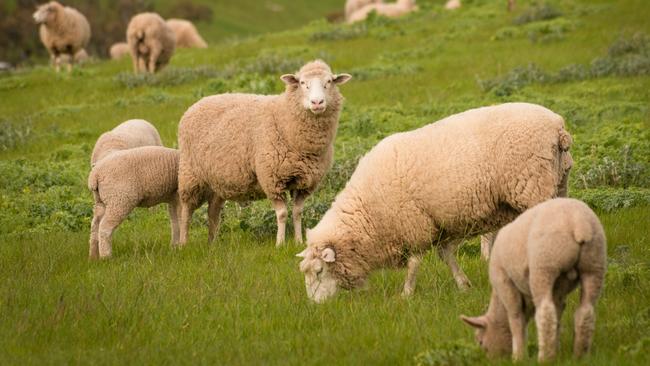Global Food Forum: The next big things in agriculture
This year food security will finally deliver on the promise. What has changed is that many countries are now really experiencing food shortages.

For 10 years we have been talking about feeding 10 billion people by 2050 and the benefits of investing with this in mind.
No one doubts it is real and Australia has benefited from huge flows of investment from around the globe. The most obvious has come from Canadian super funds and Ivy League universities.
Much of this has flowed into farm purchases and farm improvements.
Very little of it has gone into driving the export of value added products our of our “food bowl to the world”.

This year food security will finally deliver on the promise. What has changed is that many countries are now really experiencing food shortages. While much of this is population-driven, it is exaggerated by Asia having dragged a lot of poor into the middle class who want to eat like we eat, and they don’t want to go back.
There has been an increase in companies coming here to buy food companies to get access to food. We will see an uplift in M&A activity in the obvious categories (grains, meat, protein) and in the not so obvious (cherries). As the year progresses, I expect to see foreign governments buying businesses for access.
This will challenge public opinion and government policy but will be positive across the board for Australian farmers and food companies.
There is a role for the government in accelerating this and one way of doing this is to better resource Austrade with clear KPIs throughout the region. More attention to Vietnam, Indonesia, and Cambodia, without dropping the ball on China.
Animal welfare
I worked at an abattoir knocking out pigs with a sledgehammer, where cows were killed with a bolt to the head and where sheep had their throats cut.
This abattoir was not in Indonesia, it was 25 miles east of Melbourne. There was no mobile phone to capture the practice and they were on no one’s radar. It is hard to admit it and write about now, but that was how animals were slaughtered.
Animal welfare practices are light years away from this now and not just in the abattoir.
We can’t bring sheep from the Northern Territory on a four-day journey without spelling them with water.
When they reach their destination, they should be unloaded without the assistance of cattle prods. Animal welfare all along the animal supply chain is subject to continuous improvement.
It is impossible not to feel guilty of double standards when pointing the finger at the Indonesians for simply being behind what are our current standards.
They are behind us in logistics, slaughter practices and refrigeration. But we were once where they are now. We are still behind best practice somewhere else in the world, but we would be aghast if we were excluded from markets because of it.

Technological advancements and education can accelerate change in our export partners. The solution is not to ban live exports, but rather to educate and share with our customers so they come up the learning curve.
If we simply withdraw, the gap will be quickly filled with Indian buffalo and box meat and that market will be hard to get back.
The best solution is education to bring importers up to our standards as quickly as possible. There is a suite of measures the government and industry can do to grow the industry for the benefit of both Australian producers and Indonesian consumers. How animals get to Indonesia is only one small part of those measures.
We need an integrated policy to work with customers on offering scholarships to Indonesians to work on farms and in Australian abattoirs, on ships transporting animals and in cold chain distribution.
The integrated approach will quickly provide quality meat that is efficiently grown, and delivered with the highest animal welfare standards, throughout the chain. The total cost would be trivial.
Carbon is real
For the last 10 years, I have relegated ESG, carbon, and related topics to at best greenwashing and attempts to replace ESG as part of the return on investment.
When Unilever’s poster boy for ESG recently said it was de-emphasising this because it was costing too much, they had me on board immediately. Similarly, when I saw Qantas buying carbon credits, I was dismayed.
I am now going to eat my words because carbon is real, credits are real, and Australia is best placed to drive a well-advanced carbon measurement and regulatory structure.
Mark Alison of Elders, Hugh Killen of IMPACT AG and Nigel Kuzemko of Carbon Fix are the centre of the universe. Carbon has the ability to deliver millions to farmers while changing farming practices. I expect to see a couple of dozen projects this year with large reputable companies as counterparties.
There is an urgent role for the government in refining the regulatory landscape and making the carbon credits exportable, but otherwise, we are ready to go.
Supermarkets going vertical
Coles recently bought the milk plants built by Gary Helou when he was running Murray Goulburn. The Australian Competition and Consumer Commission examined the acquisition and approved it.
This is only one of several examples of major retailers trying to control their supply and sourcing. I don’t believe we have heard the last of this. This is a new issue for the competition regulator.
David Williams is the founder of Kidder Williams.





To join the conversation, please log in. Don't have an account? Register
Join the conversation, you are commenting as Logout